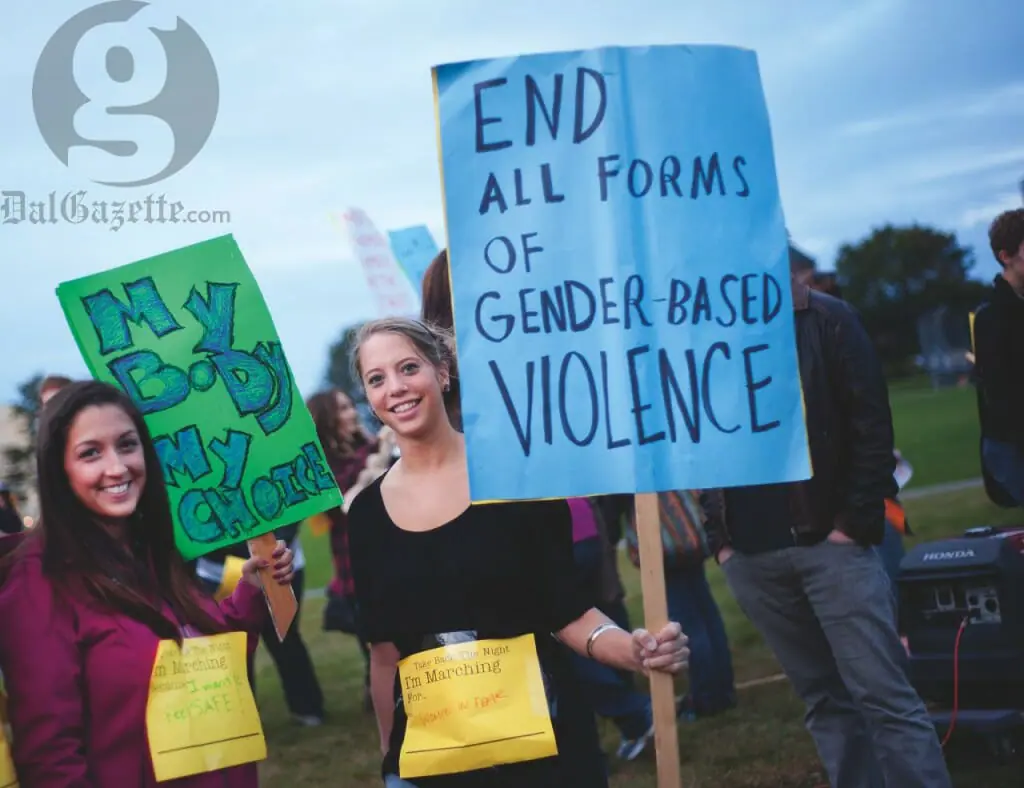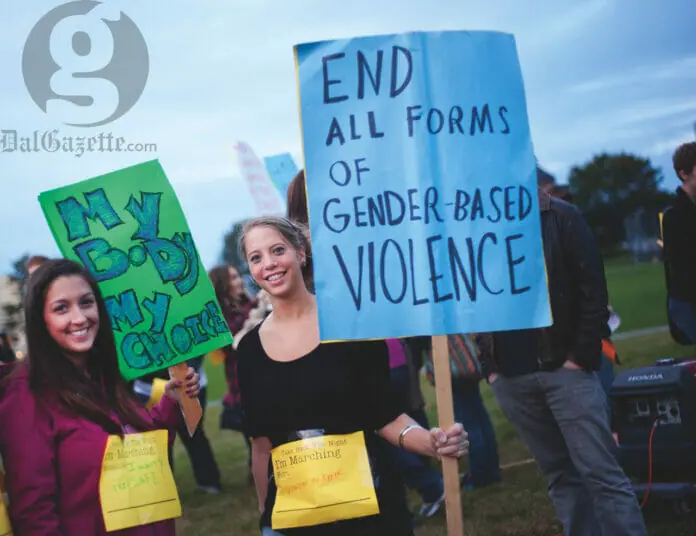Take Back the Night takes over the north end

Editor’s Note: A correction was made to this article in regards to Ellen Taylor. In the print issue, there was no mention that Taylor is a sex columnist at the Gazette. The Gazette regrets this omission and has reflected the changes in the article online.
On the evening of Oct. 1, just as the street lights flickered on, there was a feeling of excited anticipation on the second floor of the Mi’kmaq Native Friendship Centre on Gottingen Street. Everyone was waiting—the 15 or so welcoming men and around five friendly women – allies to Take Back the Night (TBTN). Finally, 40 women of all ages and orientations entered, crowding the room with an air of power, confidence and victory.
Participants of the 2011 version of TBTN rallied by the fountain in the centre of the Commons. The women and transgender participants then marched through the streets of north end Halifax to the Mi’kmaq Native Friendship Centre on Gottingen Street. Waiting for the marchers were Allies, men who support marginalized members of society.
TBTN Halifax is organized by the Dalhousie Women’s Centre, but this year it was planned in consultation with community members through open meetings that started in June.
According to the Gay Halifax website, the first TBTN rally in Halifax was organized by the Anarcha-Feminist Reading Group in the late 1970s as a way to resist the power that men wield over women. Their slogan was, “Women Unite! Reclaim The Night! Our Bodies, Our Dignity, Our Rights!”
Daphne, a biological male who identifies as a woman and a lesbian, says events like TBTN are essential. “We have to recognize that violence is endemic,” she said after the event. “It’s not just in the streets, it’s in the homes, too. We have to get to the roots of the problem.”
She says she gets “skittish” when walking home alone and prepares for any dangers she may encounter.
Michelle Graveline, a women who has been marching with TBTN since the early 1980s, believes that the patriarchy the founders of the Halifax TBTN were fighting still exists today. Graveline said, “The issues highlighted each year change. In the 80s it was domestic violence. Today it’s transgendered people, sex workers and date rape. All the issues exist all the time, though.”
Graveline said, without hesitation, that she never walks home alone at night.
Ellen Taylor, a member of the Dalhousie Women’s Centre and an organizer of this year’s TBTN, said that the aim of TBTN is to create an environment in which victims are comfortable talking about their experiences.
“I am a sexual assault survivor. Unless people can talk about their experiences, they will continue to be victims,” says Taylor.
She also spoke of the importance of bringing an end to the “rape myth.” “It’s used against anyone who’s been assaulted to shift the blame to the victim. You see it in the media all the time in questions like, ‘What were you wearing?’ ‘Were you alone?’ ‘Were you drunk?’ It’s bullshit!”
Taylor said she too does not walk home alone at night because the streets just aren’t safe.
John Wastenays is an Ally. He waited at the Friendship Centre to greet the marchers upon their arrival. Wastenays believes it is worthwhile for the march to be exclusively for women because women need spaces that are safe and public.
After a long hesitation, Wastenays said that it is rare for him to be afraid as he walks alone at night.


Recent Comments